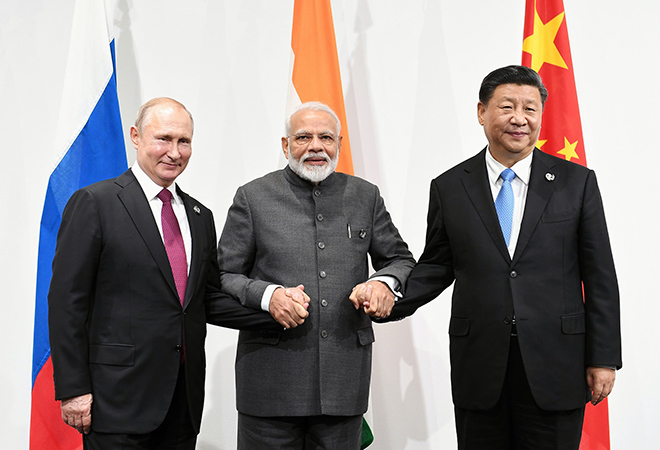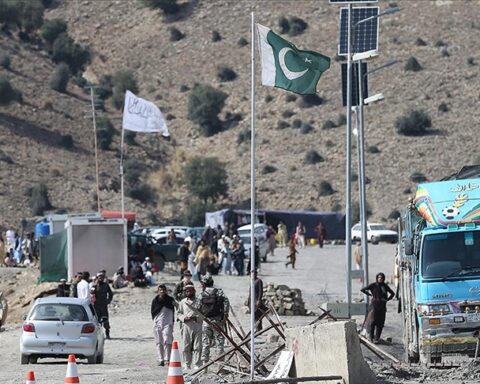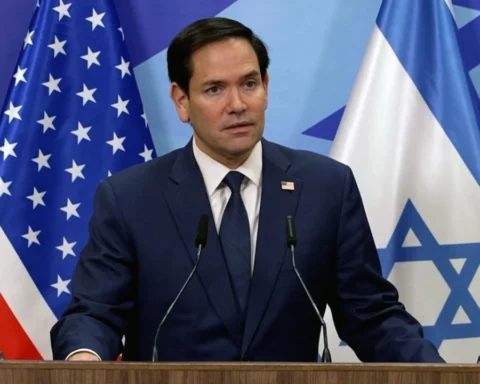U.S. President Donald Trump has announced that he will meet with Russian President Vladimir Putin in Alaska on Aug. 15. They had spoken many times over the phone, and though there were indications that those conversations would produce some kind of agreement, nothing concrete ever materialized. Instead, Russia upped the intensity of its attacks in Ukraine, gaining more territory and increasing its use of drones in these assaults, especially against the capital of Kyiv.
If we assume the phone calls were as promising as Trump publicly said they were, then Putin’s continued prosecution of the war was meant to limit the danger of increased U.S. support while continuing to try to defeat Ukraine – or at least improve Russia’s territorial position. The problem was that Trump had claimed he would end the war quickly. His failure to do so makes it seem as though Putin fooled him, or that he was unable to read Putin’s intentions. Either interpretation would come at the cost of his credibility. (It’s certainly possible that the negotiations were not as promising as Trump made them seem, but in my opinion, this is unlikely because Trump would have little to gain and much to lose by misrepresenting the talks.) Either way, Putin put Trump in a difficult position by indicating an interest in resolving the conflict while increasing military operations.
Putin had a good reason to. The war in Ukraine has been a failure. Russia’s objectives were to create a buffer zone that insulated Moscow from NATO, to retake some of the land lost in the collapse of the Soviet Union, and to reclaim Russia’s status in the international order.
But Russia has spent a lot of money and manpower there, and it doesn’t have much to show for it. Its territorial gains are relatively trivial, and its economy is in shambles. The only logical rationale for continuing the fight was to make it seem as if a negotiated settlement was in Ukraine’s interest, not Russia’s. The appearance of abject failure in Ukraine could have dire political consequences for Putin and for the global perception of Russia.
So Putin has been attempting to at least increase the extent of Russia’s penetration of Ukraine. As time went on, the U.S. increased its military aid to Ukraine, but only marginally. The more consequential response, in the absence of a settlement, was to threaten a massive attack on the Russian economy through an even more aggressive tariff campaign. This time, it would impose crippling tariffs on any nation that bought Russian goods – especially Russia’s biggest exports, oil and natural gas.
This is why Washington declared a 50 percent tariff on India. India is a large and important country, one with a relatively good economic relationship with the United States, particularly as an alternative import supplier to China. By placing tariffs on India, the U.S. signaled to Russia that its threats were utterly serious. If the U.S. were prepared to punish India for trading with Russia, then it would have no problem punishing other, smaller countries. Put differently, if India could be hit, no country that buys Russian oil would be safe.
The decision to strike at India was as surprising to India as it was to Russia. This may explain why Putin quickly agreed to a face-to-face summit with Trump. Putin reportedly suggested that they meet in the United Arab Emirates, and Trump insisted that it be on U.S. soil – a symbolic act of submission on Putin’s part.
I would expect that, given the threat to Russia, Moscow is prepared to make peace, and Trump will now have a powerful tool in those negotiations. Ukraine, meanwhile, will be making greater demands on Russia in agreeing to the peace settlement. Whether it gets better terms depends on agreements that will be discussed in Alaska that go beyond Ukraine. Trump has already offered improved economic relations with Russia – something that certainly seemed to sway Moscow at the time. This kind of overture may or may not be renewed.
It’s possible that the upcoming meeting could be promising but not decisive. It’s possible Putin will continue his negotiating strategy of delaying results to try and change the military situation in Ukraine. And it’s possible that the summit will be canceled or postponed. But in my view, the threat to India means that Putin needs a settlement. This will be a matter of geopolitics, but it will also be determined by internal Russian politics, or simply by Putin’s private consideration.
Source: https://geopoliticalfutures.com/on-the-upcoming-trump-putin-summit-and-tariffs-on-india/






